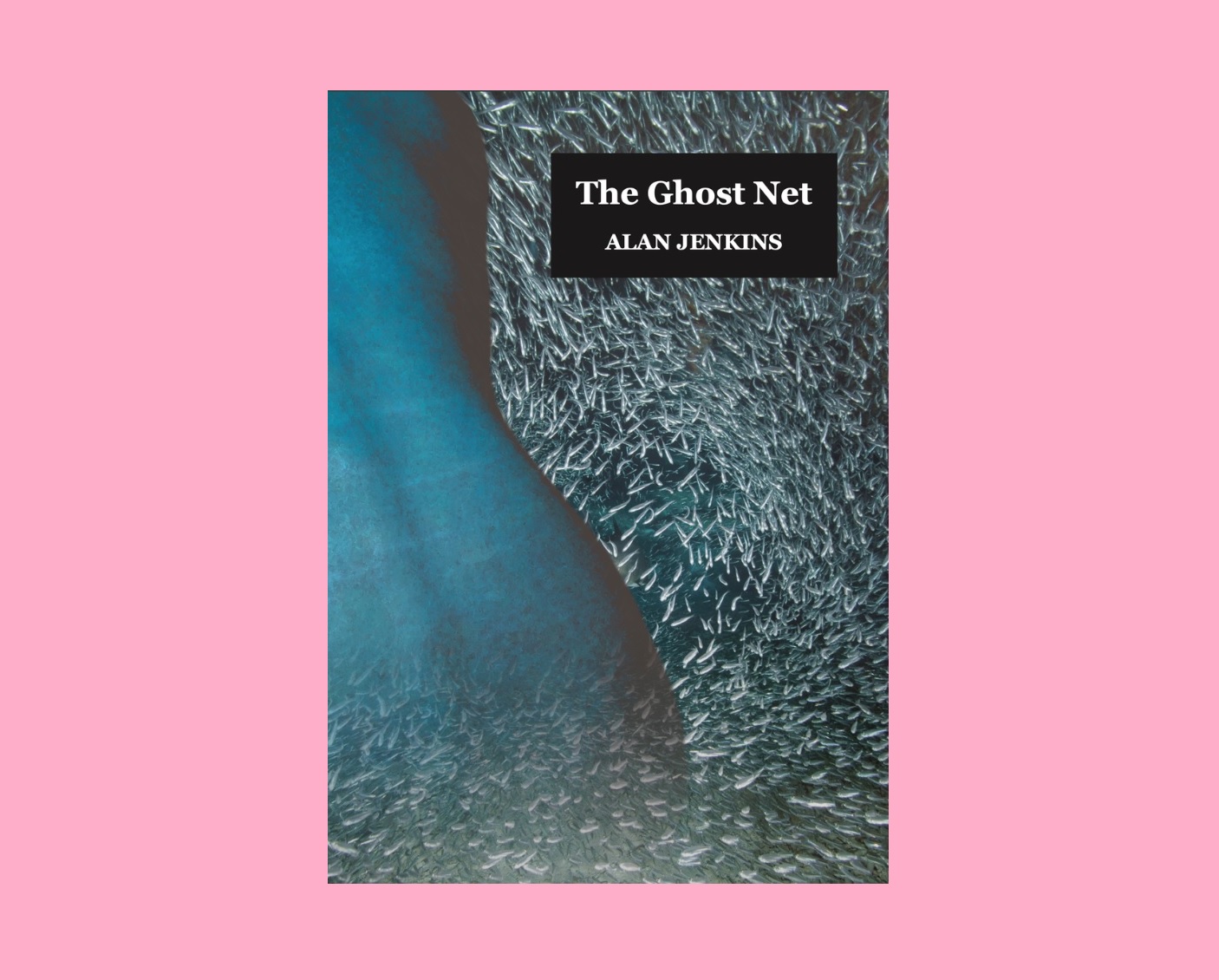Richie McCaffery
The Ghost Net is Alan Jenkins’s eighth book-length collection and the first full collection from New Walk Editions, marking a very auspicious new venture for the press which began by producing elegant, quality poetry pamphlets and grew out of the much admired and missed poetry magazine, New Walk.
From the collection title onwards – a ‘ghost net’ being a fishing net lost or discarded at sea – Jenkins employs a pelagic vocabulary. We learn in ‘Salt-water days’ that he, or his speaker at least, attended nautical school and a number of these poems are about the whole Malcolm Lowry romantic youthful notion of being out at sea and the associated ripping yarns of old salty sea dogs and beau sabreurs. And like Lowry with his ukelele, Jenkins is capable of making rakehelly music in his poems:
Every chance I’d let go to waste,
Each drag, each drunken fuck,
Each drop of booze,
Each bit of undeserved good luck
I’d somehow refused to use;That I who’d been
The doctor, was now the disease…(from ‘A Song of Maine’)
Jenkins’s language is also aptly earthy and corporeal: ‘How much you’d miss the feel of scallop-shell / Slippiness inside’ (from ‘B&B’). Whereas poetry often strains to rarefy experience with pretty wording, Jenkins’s register is decidedly slangy and dysphemistic, full of arses, fucks, coke-snorting and discarded condoms like ‘the ghosts of cocks’, very much like Jenkins’s (who studied French and English literature at university) spiritual poetic ally Charles Baudelaire’s ‘nostalgie de la boue’. But all is not well in these poems, the youthful spirit of adventure on the high-seas foundering in later life to become disaffection, anger and tristesse:
But what can you make of England, of her historic wrecks
And of her people fed on lies and lotteries and sex,
The shit-showers of stupidity that rain down on her decks?(from ‘Salt-water days’)
In ‘Shark Song’, Jenkins aims his ire at ‘broken Britain’ by comparing the Tories to a shiver of insatiable sharks: ‘No-one, fuck! Can stop us feeding […] / everyone to us is chow’. In ‘Deptford’, Jenkins shows us that he is essentially a Romantic two centuries late and this character study of an old sea dog reads like something from an updated Lyrical Ballads or ‘Rime of the Ancient Mariner’ crossed with the angry voice of Tony Harrison’s V:
…Poetry?
A fucking revolution
’s what this place needs.
While England bleeds,
Good Queen Lilibet
Pisses on us all.
Her kingdom for a horse –
Get out, for Christ’s sake!
Steer a different course!
Steering a different course is what the speaker of these poems does, with ‘poetry’ as their ‘secret vice’, though they risk disappointing their parents who held more traditional values and ambitions. A life devoted to poetry is perhaps not what ‘England expects’ and a number of the poems are very self-flagellating (‘Your nights are all bad dreams soaked in remorse’ ), which show that the speaker has perhaps not had the life they hoped for. But they have at least lived on their own terms and have not had the ‘life unexamined’. For all of Jenkins’s wider perspective and social conscience, these poems are in fact deeply private, personal and threnodic. It’s clear the speaker is haunted by not just one major breakup, but the loss of friends such as colleague and fellow poet Mick Imlah and the extraordinary war correspondent Marie Colvin who was murdered in an air strike by the Assad regime in Homs, 2012. Against the mettle of Colvin, in the dream sequence ‘The Night Sail’, Jenkins sees all of his failings, cowardice and inaction:
you intimated there was ‘no way’ I could refuse –
your final offer. You laughed your smoker’s laugh
when I climbed aboard, as if to say, What have you to lose,what have you ever had? Moper, mooncalf,
landlubber, pub-haunter… There was dried blood
on the gunwhales, on the coaming, and down one halfof your lovely, laughter-lined face! With the flood
we drifted upstream, through fast-running bends,
past hollow-eyed dark barges sunk in mud
Many of the poems are haunted by loss and have an ‘Eheu, fugaces’ feel to them, things slipping inexorably through the fissures of time and the poet powerless to prevent it. Here, a collection of poems is like the ‘ghost net’ that dredges up its sorry haul of the flotsam and jetsam and mess of a life lived less than conventionally. But the very act of doing this, of committing memories to words and paper, is a redemptive act; it is salvage and in that lies solace. The speaker’s journeys have not been swashbuckling physical ones, but rather psychological voyages where crossing the blank page with a pen can be every bit as daunting and exciting as navigating an ocean. It takes courage to be alive, in all that means and entails. We all have the choice to sink or swim and Jenkins closes this collection with a hauntingly ambiguous image that could easily mean one or the other, or both:
Forever calling time… Time heavy on my hands,
I would sit in an old trenchcoat, stylishly out of date,
And drink to you – a salt sea grievingIn landlocked, long complaint – then steer dead ahead
Through a thin drizzle towards the lights of yachts
Tied up in the harbour, I’d always be leavingBut not on one of them, my decks awash,
The crew long gone and I the only mourner
Of the lost years I have not drowned yet.(from ‘Blue Days (Sailor’s Return)’)
